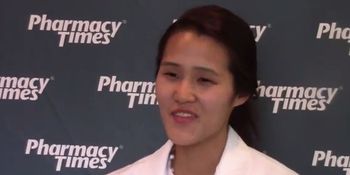
Erin Fox, PharmD, director at the University of Utah Drug Information Service, discusses how strategies to mitigate drug shortages can lead to medication errors.

Erin Fox, PharmD, director at the University of Utah Drug Information Service, discusses how strategies to mitigate drug shortages can lead to medication errors.

Hae Mi Choe, PharmD, details the types of reimbursement processes available for clinical pharmacy services.

Erin Fox, PharmD, director at the University of Utah Drug Information Service, discusses how pharmacists can help avoid drug shortages.

Hae Mi Choe, PharmD, describes how pharmacists can help ensure consistency across health care providers.

Erin Fox, PharmD, director at the University of Utah Drug Information Service, discusses how pharmacists can manage during drug shortages.

Hae Mi Choe, PharmD, describes the challenges associated with metrics and tools for health-system pharmacy.

Aaron Steffenhagen, PharmD, BCPS, a clinical pharmacy manager at the University of Wisconsin Hospital, discusses what areas pharmacists should focus on during acute stroke codes.

Erin Fox, PharmD, director at the University of Utah Drug Information Service, discusses how strategies to mitigate drug shortages can threaten patient safety.

Aaron Steffenhagen, PharmD, BCPS, a clinical pharmacy manager at the University of Wisconsin Hospital, discusses a pharmacist's door-to-door discharge role when managing an ischemic stroke patient.

Binita Patel, PharmD, MS, explains the role telehealth and telepharmacy will play in patient management.

Aaron Steffenhagen, PharmD, BCPS, a clinical pharmacy manager at the University of Wisconsin Hospital, discusses how pharmacists can enhance stroke care.

Binita Patel, PharmD, MS, discusses how provider status would affect reimbursement models in ambulatory pharmacy.

Aaron Steffenhagen, PharmD, BCPS, a clinical pharmacy manager at the University of Wisconsin Hospital, discusses measures of gauging stroke.

Thomas Morrow, MD, chief medical officer at Next IT, discusses hurdles that specialty pharmacies need to overcome.

Binita Patel, PharmD, MS, discusses how pharmacists can prepare for threats to the current ambulatory care model.

Binita Patel, PharmD, MS, explains how threats to the ambulatory care model will change pharmacist care.

Aaron Steffenhagen, PharmD, BCPS, a clinical pharmacy manager at the University of Wisconsin Hospital, discusses how a pharmacist's unique knowledge can improve the stroke care team's patient care approach.

Binita Patel, PharmD, MS, details how pharmacists can prepare for changes associated with ACOs and population health.

Stephanie Baker Justice, PharmD, BCPS, a pharmacy specialist in the emergency department at Charleston Area Medical Center, discusses strategies pharmacists can implement to decrease medication errors.

Binita Patel, PharmD, MS, describes the impact that ACOs and population health will have on ambulatory care pharmacy.

Daniel Boulos, a P4 student at the Philadelphia College of Pharmacy at the University of the Sciences, recounts why he entered pharmacy school.

Josh Garcia, a P4 student at the Philadelphia College of Pharmacy at the University of the Sciences, recounts why he entered pharmacy school.

Stephanie Baker Justice, PharmD, BCPS, a pharmacy specialist in the emergency department at Charleston Area Medical Center, discusses how pharmacists can learn from their own errors.

Stephanie Baker Justice, PharmD, BCPS, a pharmacy specialist in the emergency department at Charleston Area Medical Center, talks about medication error risk points pharmacists should watch out for.

Eun Jeong Choi, a P4 student at the Philadelphia College of Pharmacy at the University of the Sciences, recounts why she entered pharmacy school.

Stephanie Baker Justice, PharmD, BCPS, a pharmacy specialist in the emergency department at Charleston Area Medical Center, gives tips on how to mitigate medication errors in the ED.

Eun Jeong Choi, a P4 student at the Philadelphia College of Pharmacy at the University of the Sciences, recounts her most memorable moment from pharmacy school.

Josh Garcia, a P4 student at the Philadelphia College of Pharmacy at the University of the Sciences, recounts his most memorable moment from pharmacy school.

Daniel Boulos, a P4 student at the Philadelphia College of Pharmacy at the University of the Sciences, recounts his most memorable moment from pharmacy school.

Craig Cocchio, PharmD, BCPS, describes the advantages that social media outlets offer to health-system pharmacists.